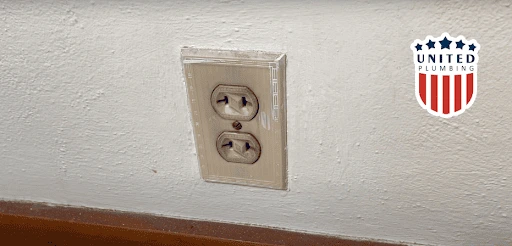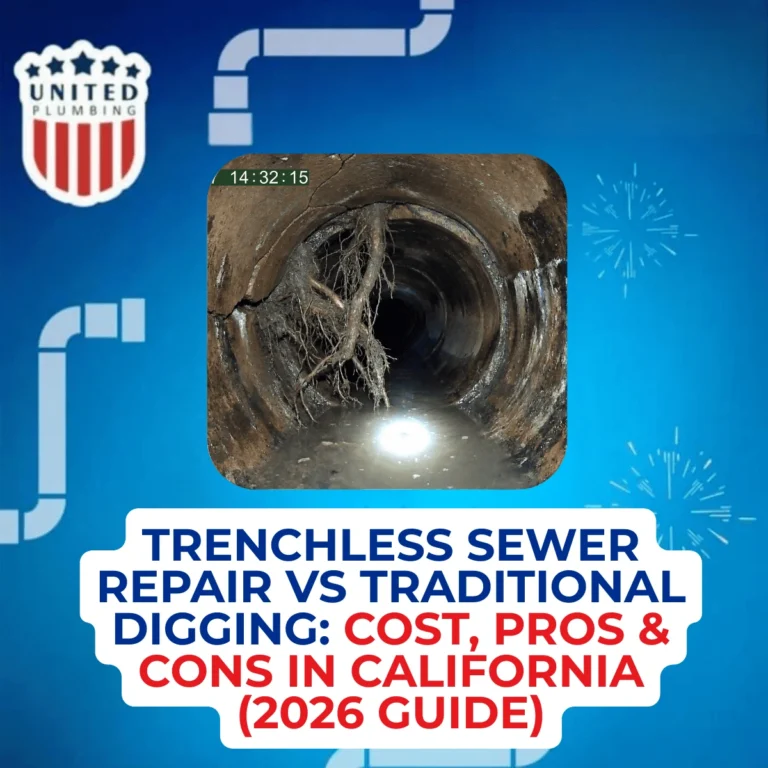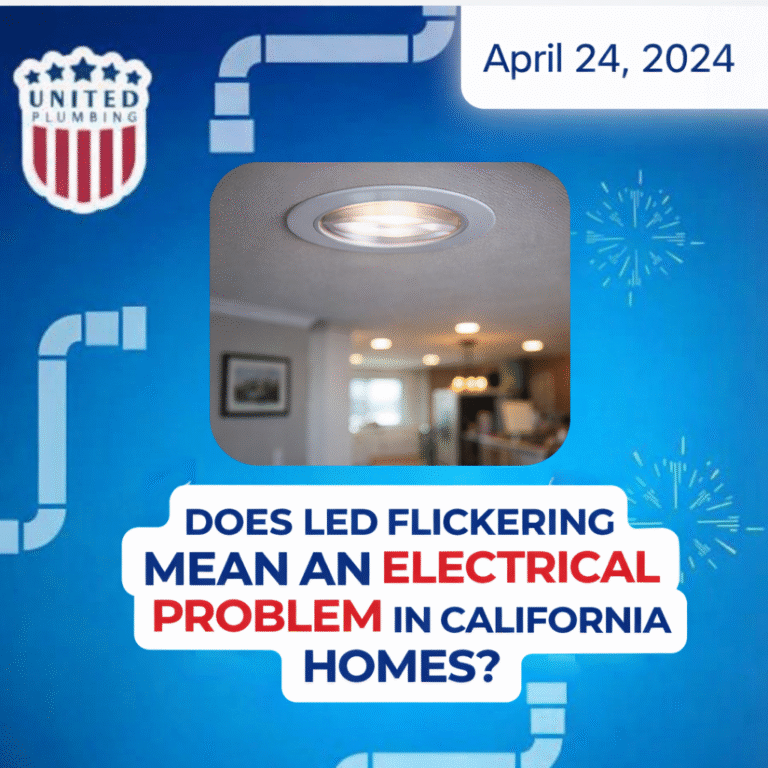FIVE-STAR TEAM WARRANTY &
SAME-DAY SERVICE
The Importance of Properly Grounding Your Home
When it comes to your home’s electrical system, one of the most neglected—yet very important—safety features is proper electrical grounding. Whether you live in an older home or a new build, understanding the importance of grounding can prevent serious risks like electrical shocks, power surges, and even electrical fires.
Grounding is an essential feature of your home that provides a safe path for excess electricity to travel during a short circuit, lightning strike, or power surge. It directs that excess energy into the earth via a ground wire or grounding rod, which keeps you, your family and your property and appliances safe. Without this low-resistance path, your electrical system is left vulnerable to overload, which very likely will damage your electrical equipment or start a fire.
What Is Grounding and Why Does It Matter?
Consequences of Improper Grounding
If your home doesn’t have a proper grounding wire or ground rod in place, here’s a couple of risks that could potentially happen:
- Increased risk of electrical shocks – Especially near electrical outlets, appliances, and plumbing fixtures.
- Frequent tripping of circuit breakers – This is caused by unstable current flow or ground faults.
- Serious damage to electrical appliances and devices – Sudden electrical surges could fry sensitive parts in your TVs, computers, and HVAC systems.
- Higher risk of electrical fires – Especially when excess electrical current builds up without a safe way to discharge.
- Violation of local electrical codes – Which could lead to costly insurance issues or complications during potential home inspections.
How Grounding Works
Every grounded home has a physical connection between its electrical wiring and the ground. This often involves a copper wire that is connected to a metal rod (the ground rod) driven into the soil. This setup provides a low-resistance path that directs electrical faults, surges, and other electrical anomalies away from your devices and back into the earth.
Without this important physical connection, electricity could potentially follow an alternative path—which could be you, your property and your family.
Warning Signs Your Home May Not Be Properly Grounded
- Two-prong outlets (They do not have ground slot)

- Shocks when touching appliances
- Buzzing or humming noises from outlets or electrical components
- Frequent breaker trips
- Flickering lights or dimming during appliance use
Why Professional Assistance Matters
It’s not something to DIY. We would recommend calling professionals. A licensed electrician or certified electrician can inspect your home’s system and very quickly install or repair grounding conductors, Ground Fault Circuit Interrupters (GFCIs), and surge protectors to meet today’s important safety standards. Professional electricians also ensure everything complies with local electrical codes—giving you peace of mind.
Especially Important for Older Homes
Older homes built before the 1960s often do not have proper grounding. If you are unsure about the condition of your electrical installations, it’s a very good idea to schedule an inspection with professionals. Grounding often can be retrofitted with modern materials like copper wire, ground rods, and upgraded electrical outlets.
Grounding Also Helps Protect Plumbing Systems
In some homes, metal plumbing is part of the grounding system. If some part of the job is done incorrectly, this could lead to electric shock risks near sinks or bathtubs. A professional electrician knows how to avoid these serious hazards while protecting both your electrical wiring and water lines.
Conclusion: Protect What Matters Most
A properly grounded home isn’t just about keeping the lights on in your house—it’s about protecting your family, your property, and your peace of mind. From electrical appliances and electrical devices to your entire home’s electrical system, grounding is what keeps it all running safely and efficiently.
If you’ve mentioned signs of improper grounding, electrical hazards, or need assistance with upgrading your electrical service, please don’t wait. Experienced electricians can provide emergency electrical service, conduct regular inspections, and prevent the risk of fire, equipment damage, or worse.
Need a grounding check?
Call United HVAC, Plumbing & Electrical — our certified electricians provide reliable and efficient electrical service across California. Whether it’s a grounding rod install or full surge protection setup, we are ready to serve you.
Post views: 680
Frequently Asked Questions
How do you ground electricity at home?
Grounding electricity at your home typically involves connecting your electrical system to a grounding rod—a metal rod that is driven into the earth. A ground wire (usually copper) runs from your main electrical panel to the rod, creating a safe, low-resistance path for excess current to flow during electrical surges or faults. This setup prevents electrical shocks, fires, and serious damage to your appliances and property. If your home doesn’t already have grounding in place, or if it’s outdated, it is recommended to hire a licensed electrician to inspect and install a code-compliant grounding system.
How do you ground electrical outlets?
To ground electrical outlets, you will need a ground wire connected to the outlet’s ground terminal (usually a green screw). This wire runs back to your electrical panel and eventually connects to the home’s main ground system. If you currently have two-prong outlets, they are not grounded. A professional electrician can replace these with three-prong GFCI outlets or properly grounded outlets as part of a broader upgrade of the electrical system. Please always consult a certified electrician to ensure code compliance and safety.
How do you ground yourself from electricity?
To ground yourself and avoid static shocks or accidental discharge during electrical work, please follow these important precautions: Use anti-static wrist straps connected to a grounded object. Wear rubber-soled shoes. Work on non-conductive surfaces. Avoid metal contact when handling wires. Always turn off power at the circuit breaker before beginning work. If you are doing anything beyond surface-level electrical tasks, please call a licensed electrician—personal safety is much more important than a fast DIY fix.
Is grounding only needed for old homes?
Grounding is very important for every home, regardless of age. While many older homes were built before grounding was standard, even newer properties may have grounding issues due to: Poor installation. Corrosion of ground rods or wires. Inadequate bonding with plumbing or gas lines. Renovations that weren’t up to code. It’s a very good idea to schedule an inspection if you’re unsure, especially if your home has two-prong outlets or signs of electrical issues.
How do you install an electrical ground rod?
Installing an electrical ground rod involves the following steps (It is better if they are performed by a licensed professional): Drive an 8-foot copper or galvanized steel rod into the soil near your electrical service panel. 1. Use a ground clamp to attach a copper wire to the rod. 2. Route the wire to your main panel and connect it to the grounding bus bar. 3. Test the connection for proper resistance using a ground resistance tester. This process must follow local electrical codes and NEC (National Electrical Code) requirements. Improper installation can result in safety hazards and failed inspections. That’s why hiring a licensed electrician is the best and safest option.
Latest posts

Trenchless Sewer Repair vs Traditional Digging: Cost, Pros & Cons in California (2026 Guide)
In California, trenchless sewer repair typically costs between $6,000 and $18,000, while traditional sewer line...

Does LED Flickering Mean an Electrical Problem?
What California Homeowners Need to Know
LED lights are popular in California homes because they use less energy...


If you still have questions or need advice, please leave a request and we will contact you as soon as possible
Need a plumber and got no clue where to start?
(408) 539-6936Facing a plumbing issue? Get a FREE in-person estimate and quick solutions from our skilled technicians, ensuring your home runs smoothly again!
